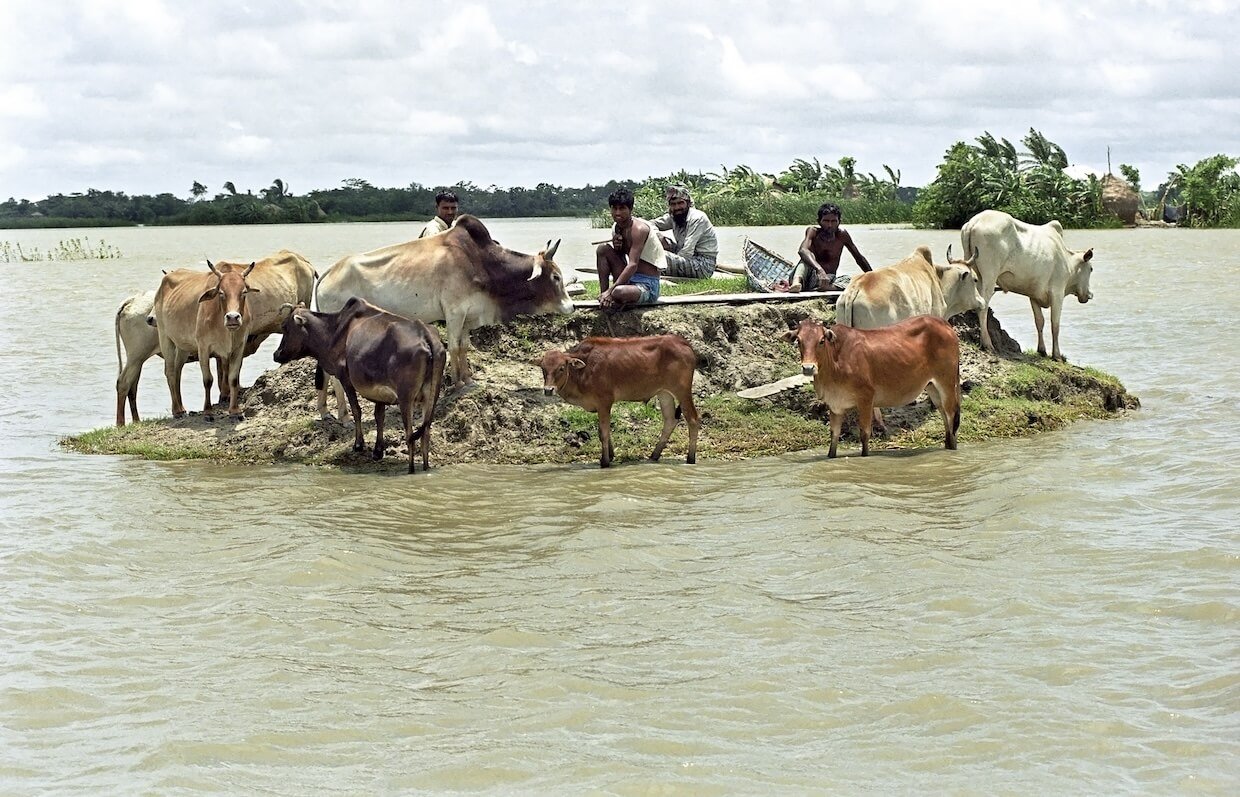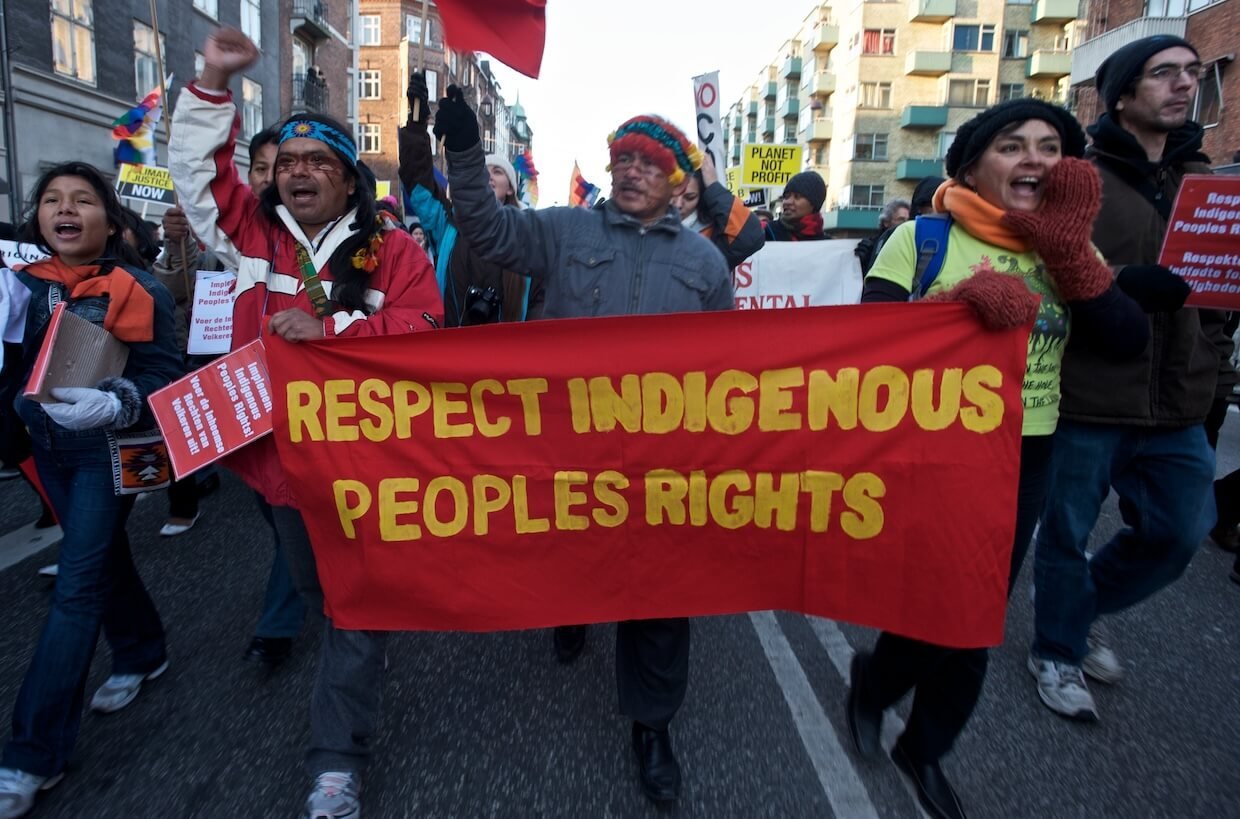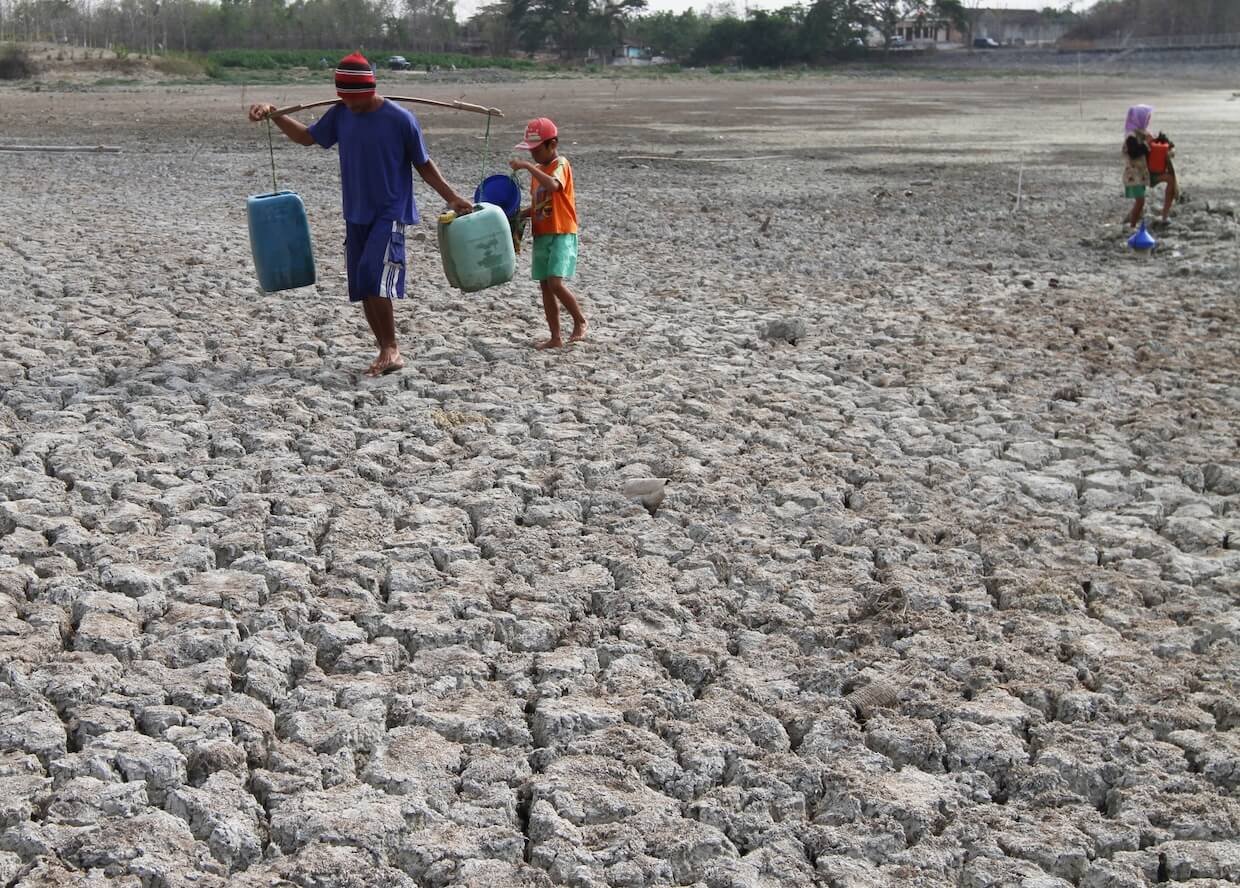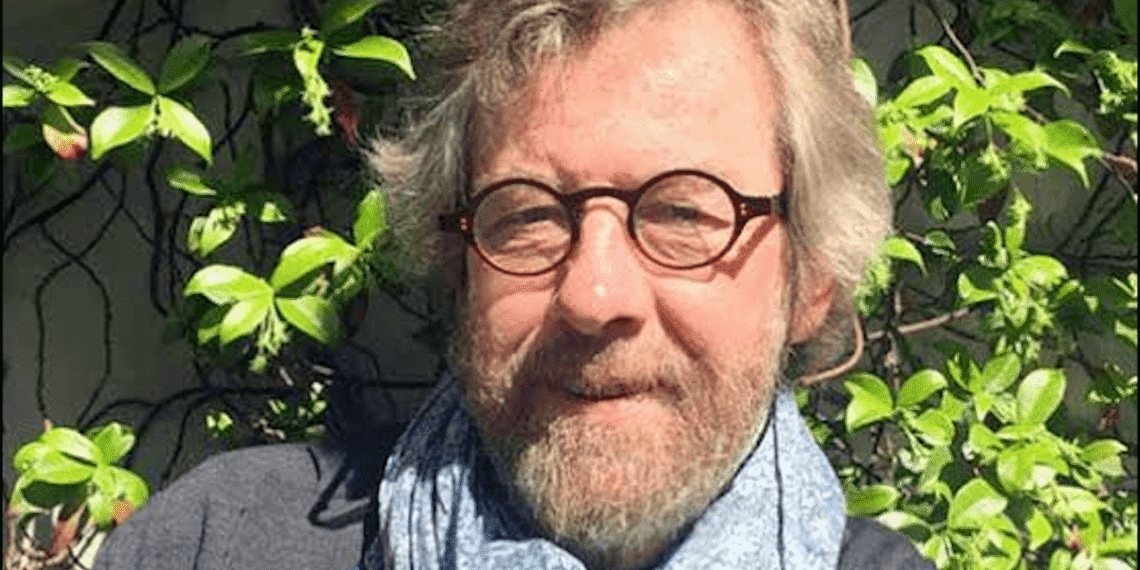In his compelling lecture, Professor Erik Swyngedouw offered a radical critique of contemporary climate discourse, describing it as trapped in a “climate deadlock” where knowledge and activism coexist with deepening ecological crisis. He argued that mainstream and radical climate narratives mirror the structure of populism, constructing simplistic binaries while displacing attention from capitalism’s core role in driving environmental destruction. Professor Swyngedouw challenged participants to recognize that the environmental apocalypse is not an imminent future but an unevenly distributed present reality for much of the world. His provocative call to dismantle the comforting fantasy of a unified humanity urged a re-politicization of the climate crisis, demanding systemic transformation and solidarity grounded in confronting global inequalities.
Reported by ECPS Staff
The sixth lecture of the ECPS Academy Summer School 2025, titled “The Climate Deadlock and The Unbearable Lightness of Climate Populism,” was delivered as part of the broader program, “Populism and Climate Change: Understanding What Is at Stake and Crafting Policy Suggestions for Stakeholders,” held online from July 7 to 11, 2025.
The lecture was presented by Professor Erik Swyngedouw, a globally respected scholar in the fields of political ecology and critical social theory. He is Professor of Geography at the University of Manchester and Senior Research Associate at the University of Johannesburg’s Centre for Social Change. His work interrogates the political dimensions of environmental crises, urbanization, and social power. Among his major publications are Promises of the Political: Insurgent Cities in a Post-Democratic Environment (MIT Press), Liquid Power: Contested Hydro-Modernities in 20th Century Spain (MIT Press), and Social Power and the Urbanisation of Nature (Oxford University Press). His forthcoming book Enjoying Climate Change (Verso), co-authored with Lucas Pohl, extends his critical inquiry into the paradoxes of contemporary climate discourse.
Moderating the session was Jonathan White, Professor of Politics at the London School of Economics. Professor White is a prominent scholar of democracy, political temporality, and European politics. His books include In the Long Run: The Future as a Political Idea (2024), Politics of Last Resort: Governing by Emergency in the European Union(2019), and The Meaning of Partisanship (2016, with Lea Ypi). As moderator, Professor White introduced the speaker, contextualized the discussion within contemporary debates on populism and climate change, and facilitated a lively and thoughtful discussion by drawing connections between climate discourse, democratic politics, and visions of the future.
In his lecture, Professor Swyngedouw advanced a provocative and unsettling critique of contemporary climate discourse. He argued that despite widespread scientific consensus, institutional action, and activist mobilization, the condition of the planet continues to deteriorate—a paradox he termed the "climate deadlock." Drawing on a psychoanalytically informed, Marxist perspective, Professor Swyngedouw contended that mainstream climate discourse functions in ways structurally parallel to populism, constructing binary narratives of virtuous “people” versus villainous “elites” or “external threats” (such as CO₂), while masking the real systemic drivers of ecological catastrophe: capitalism’s relentless imperative for accumulation and growth.
Professor Swyngedouw’s central claim—that both liberal and radical climate discourses reproduce depoliticization by focusing obsessively on carbon emissions as a fetish object—challenged participants to rethink familiar narratives. He argued that the obsessive focus on CO₂ reduction displaces attention from the deep class antagonisms and material inequalities at the root of the climate crisis, allowing societies to “act as if” they are responding to climate change while leaving intact the socio-economic structures that cause environmental destruction. This displacement, he explained, generates what he termed the “unbearable lightness of climate populism”—an empty consensus that obscures the political transformations truly required.
This lecture, rich in theoretical rigor and critical insight, provided a powerful contribution to the Summer School’s objective of fostering critical debate about populism and climate change. It invited participants to reflect on how even well-intentioned environmental discourses can perpetuate depoliticization and obstruct radical action, urging a re-politicization that directly confronts the systemic drivers of ecological crisis.
Focusing on the Climate Obscures the Politics

In his lecture, Professor Erik Swyngedouw delivered a provocative opening that set the tone for his critical analysis of climate discourse. Speaking with characteristic wit and candor, Professor Swyngedouw began by emphasizing a paradoxical but central claim: if we truly want to take the climate crisis seriously, we must stop focusing on the climate itself. This counterintuitive assertion framed his argument that the mainstream climate consensus—shared across liberal, radical, and even activist sectors—has become trapped in what he described as a “climate deadlock.”
According to Professor Swyngedouw, this deadlock emerges not from ignorance but from a deep structural dynamic. While knowledge and consensus about the seriousness of climate change are widespread, genuine transformative action remains absent. He argued that climate discourse today is structured in ways that parallel populist discourses: it constructs a binary narrative of virtuous “people” versus villainous “elites” and simplifies complex socio-economic realities by reducing them to fetishized objects—greenhouse gases like CO₂, methane, and nitrous oxides.
Drawing on psychoanalytic theory, Professor Swyngedouw contended that greenhouse gases have come to function as a “fetish” in the classic sense: a symbolic object that absorbs collective anxiety while allowing the underlying socio-political structures that drive ecological crisis—especially global capitalism and accumulation—to remain intact. In this view, the obsessive focus on CO₂ reduction serves as a form of displacement that assures that nothing fundamentally changes. Thus, Professor Swyngedouw’s core proposition was that mainstream and even radical climate discourses have become part of a pervasive depoliticization process, obscuring the real sources of the crisis while creating the illusion of action.
Mapping the Climate Deadlock
Professor Swyngedouw offered a penetrating analysis of what he termed the “climate deadlock,” a paradoxical condition in which global awareness and consensus about climate change coexist with mounting environmental degradation and policy failure. Professor Swyngedouw underscored that, despite widespread knowledge, sophisticated technologies, radical activism, and repeated calls for urgent action, climate parameters continue to worsen, with greenhouse gas emissions rising relentlessly. He framed this as a profound political and psychological impasse demanding a different conceptual lens.
To illuminate this impasse, Professor Swyngedouw employed a Marxist-Lacanian, psychoanalytically informed perspective, focusing especially on the psychology of those most committed to climate action: radical activists and conscientious citizens alike. He argued that many such actors—while passionately advocating for change—are caught in forms of what psychoanalysis calls “surplus enjoyment” and “hysterical acting out,” manifested in both symbolic protests and personal lifestyle adjustments, such as reducing air travel or adopting vegetarianism. These practices, while seemingly transformative, actually sustain an underlying attachment to the existing socio-ecological order.
Fetishistic Disavowal and the Object Cause of Desire
Drawing inspiration from the French philosopher Alain Badiou, Professor Swyngedouw suggested that the dominant climate discourse operates as a new “opium of the people”: a depoliticizing ideology that channels political energies into managing “the climate” as a technical object while obscuring the deeper power structures—especially capitalism—that drive ecological crisis. Central to this critique is the concept of “fetishistic disavowal,” where societies simultaneously acknowledge the reality of climate change yet act as if they do not know, displacing transformative political struggle onto the technical management of greenhouse gases, which have been fetishized as the primary cause of crisis.
Professor Swyngedouw thus identified a dangerous cognitive dissonance: even as greenhouse gas concentrations reach record highs, mainstream discourse congratulates itself on partial regional successes, such as EU emissions reductions, while ignoring how these reductions are offset by increases elsewhere to sustain global consumption patterns. This displacement allows societies to avoid confronting the “real” socio-political antagonisms and material inequalities embedded in the climate crisis.
Professor Swyngedouw argued that climate discourse and activism are not only shaped by the urgent need to address ecological breakdown but also marked by a libidinal attachment to the very socio-ecological order they critique. He suggested that many climate activists, while sincerely desiring a socially just, democratic, and environmentally sustainable world, displace this larger, daunting desire onto a “small object” that stands in for systemic transformation: the reduction of CO₂ emissions.
Professor Swyngedouw likened this displacement to the structure of fetishism in psychoanalysis, where desire attaches to a fragment or object—such as a shoe—allowing the subject to avoid confronting the whole, more difficult reality of a relationship. In this case, he contended that CO₂ becomes the “little object of desire,” the symbolic focal point around which hopes for ecological and social renewal revolve. This focus allows activists and institutions alike to engage in practices like recycling, dietary changes, and ethical consumption—actions that offer partial satisfaction but ultimately fail to address the root cause of the crisis: the capitalist drive for endless growth.
Professor Swyngedouw maintained that this fetishization ensures that the true trauma at the heart of the climate crisis—the need for radical political and socio-economic transformation—remains disavowed. By focusing on CO₂ as the manageable object, climate discourse paradoxically enables enjoyment of critique and activism while leaving intact the structures that produce ecological harm, thereby sustaining the status quo under the guise of transformation.
The Unbearable Lightness of Climate Populism

Professor Swyngedouw advanced a critical argument about what he termed “the unbearable lightness of climate populism.” He began by asserting that, despite widespread calls for change, many subjects do not truly desire a different socio-ecological order. Instead, their desire becomes articulated around CO₂ reduction as the privileged object of action. This displacement, Professor Swyngedouw argued, leads to a discourse whose architecture mirrors the logic of populism—a framework typically associated with right-wing nationalism but, in his analysis, equally at work within liberal and even radical climate discourses.
Professor Swyngedouw described how climate populism unfolds through the consensualization of the climate question, the mobilization of an apocalyptic imaginary, and the reliance on technocratic and managerial solutions. Central to this process, he contended, is the commodification of greenhouse gas emissions, the encouragement of individualized responsibility and guilt, and a focus on technical fixes rather than systemic change. In this way, climate discourse parallels right-wing populism’s structure, even as it espouses different substantive aims.
He outlined that both right-wing populism and mainstream climate discourse frame their arguments around a virtuous “people” threatened by a dangerous “other”—whether migrants or greenhouse gases—while externalizing the root causes of crisis. Both deploy narratives of existential threat and call for decisive action but stop short of confronting the real systemic drivers of inequality and ecological degradation. In Professor Swyngedouw’s formulation, this amounts to a profound depoliticization, where urgent rhetoric masks an incapacity to challenge the socio-ecological status quo.
Professor Swyngedouw summarized the hegemonic view underlying climate populism as a narrative where a global humanitarian threat—caused by idle elites or external invaders like CO₂—requires urgent mitigation using precisely the market-conforming technologies and governance structures that caused the crisis in the first place. This narrative sustains the illusion that catastrophe can be averted, that humanity can be saved, and that a lost Arcadian socio-ecological harmony can be restored if CO₂ levels return to 300 parts per million (ppm)—a formulation that he dismissed as a populist fantasy.
Expanding on this critique, Professor Swyngedouw presented twelve theses illustrating the structural parallels between right-wing populist discourse and climate populism. He invited his audience to imagine substituting the term “migrant” for “CO₂” to recognize the architectural similarity. Both discourses invoke “the people” or even “humanity” as a whole, presupposing a unity that he argued does not exist, as demonstrated by the vast disparities between, for instance, Gaza or Ukraine and wealthier regions. Both posit a direct relationship between public participation and the legitimacy of governance while short-circuiting genuine political conflict by reframing structural issues as matters of technical management.
Professor Swyngedouw pointed out that climate discourse has no privileged subject of transformation—no agent akin to the proletariat for socialists or women for feminists. Instead, it defines the enemy in externalized, fetishized terms: CO₂ becomes an ambiguous, socially empty, homogenized object that obscures the historical and material conditions of its production. A ton of CO₂ is treated as identical regardless of its source or context, encouraging a depoliticized response aimed at trimming “excess” emissions so that business-as-usual can continue.
He warned that dominant climate policies express demands addressed to elites to “act decisively,” rather than seeking to transform the elites themselves or the structures of accumulation and inequality that they defend. As an illustration, Professor Swyngedouw cited the exponentially expanding energy demand driven by artificial intelligence, whose corporate proponents are already ensuring that energy provision—including nuclear energy—will meet future AI growth. This example, he argued, epitomizes how climate discourse moves problems around rather than solving them.
Professor Swyngedouw then probed the appeal of climate populism, asking why so many—from radicals to mainstream actors—are drawn to this discourse. He suggested that its attraction lies in its function as a form of fetishistic disavowal: it allows individuals and societies to take the climate question seriously while avoiding the need for fundamental change. It enables solutions to be located within the familiar contours of technical and managerial governance arrangements while preserving existing socio-ecological power relations.
He cited Alain Badiou’s claim that environmentalism has become the “new opium of the people,” a soothing discourse that ensures things can go on as normal. The result is a climate debate that depoliticizes environmental matters by shifting attention away from what Professor Swyngedouw called “the mad dance of accumulation and its constitutive class dynamics”—the real drivers of climate breakdown. Instead, focus is displaced onto the symptom: CO₂, a fetish object that can be measured, traded, and managed, while the systemic causes remain unchallenged.
Professor Swyngedouw concluded that this logic leads to forms of “obsessive or hysterical climate activism,” which he characterized as “impotent acting out”—a pattern of behavior that allows society to appear engaged while keeping the underlying disease intact. He argued that this practice is supported and reproduced through the deployment of “empty signifiers” like sustainability, mitigation, adaptation, transition, and resilience. These terms enjoy universal approval yet lack substantive content, generating a hollow consensus that depoliticizes the climate question even further.
For Professor Swyngedouw, this configuration exemplifies the depoliticizing and uncannily populist phantasmic narrative and practice of what he termed “the climate catastrophe consensus.” His critique invited participants to reflect critically on the ideological architecture of mainstream climate discourse and the ways in which it allows a destructive socio-ecological system to persist under the guise of environmental concern.
The Real of the Climate Condition
Then, Professor Swyngedouw turned to “the real of the climate condition,” aiming to expose the systemic drivers of climate breakdown often concealed by mainstream discourse. He began by emphasizing the near-perfect correlation between GDP growth and greenhouse gas emissions. For Professor Swyngedouw, this relationship reflects how economic growth—understood as capitalist accumulation—is not merely an obsession but a structural necessity for the sustainability of modern societies. Without growth, crises ensue; thus, attempts by eco-modernists to claim that economic expansion can be decoupled from environmental degradation are, in his words, “fantasy land.” This illusion is starkly challenged by phenomena such as the environmental footprint of artificial intelligence, whose rapid rise portends escalating energy and resource demands.
To illustrate the material reality underpinning climate change, Professor Swyngedouw provided examples that disrupt the common narrative of an immaterial, post-industrial economy. Internet use, often celebrated for replacing carbon-intensive travel, accounts for approximately 2% of global climate emissions, rivaling aviation. The proliferation of smartphones and tablets adds to this footprint: each device represents 22 kilograms of CO₂ emissions, with over 3.5 billion devices globally. Their manufacture also embodies grim socio-ecological consequences, notably in Central Africa, where coltan mining—vital for ICT equipment—occurs under exploitative and violent conditions, often at the hands of militias and through the involvement of Chinese corporations. Professor Swyngedouw noted the irony that while Western societies discuss “decolonization,” they outsource contemporary extractive imperialism elsewhere, absolving themselves of direct responsibility.
Furthermore, he pointed to the extreme inequality of emissions: the top 10% of emitters are responsible for nearly half of global energy-related CO₂ emissions, while the poorest 10% contribute a mere 0.2%. The richest 0.1% alone emitted ten times more than the rest of the richest 10% combined, exceeding 200 tons of CO₂ per capita annually. These empirical facts reveal a deeply unequal, class-driven structure at the heart of the climate crisis. Yet, Professor Swyngedouw argued, this “real” is systematically disavowed in public discourse, displaced onto fantasies centered on technical management and abstract targets.
This fetishistic disavowal, Professor Swyngedouw explained, allows societies to “know very well” the facts of climate breakdown while continuing to “act as if we do not know.” In this paradox, knowledge itself becomes complicit in maintaining a socio-ecological order premised on endless growth, inequality, and environmental destruction. He warned that unless this structure is confronted, climate discourse will remain trapped in what he called a “populist climate fantasy.”
To move beyond this impasse, Professor Swyngedouw identified two key fantasies that must be transgressed. The first is the dystopian imaginary of an imminent catastrophe that can still be averted. For decades, climate narratives have proclaimed that we are five minutes to midnight, yet never past it, perpetuating an atmosphere of fear that serves neoliberal governance by depoliticizing conflict and presenting climate breakdown as a universal humanitarian threat. This framing enables techno-managerial responses while disavowing the combined and uneven realities of climate impact, where some communities are already experiencing collapse.
The second fantasy revolves around the idea that “humanity” itself is at risk. Professor Swyngedouw questioned the very notion of a singular humanity, pointing to stark global inequalities and conflicts that belie the fiction of a unified global subject. By invoking the danger to an imagined humanity, dominant discourse displaces recognition of the structural antagonisms that produce ecological catastrophe and directs political attention toward generalized, abstract fears.
Professor Swyngedouw underscored that rejecting the apocalyptic narrative—asserting instead that for many, the catastrophe has already occurred—is a necessary step toward politicizing the climate condition. Only by confronting these repressed traumas and dismantling the fantasies that sustain depoliticization can we begin to envision a genuinely transformative ecological politics.
Toward Political Ecologies

In this concluding section of his lecture, Professor Swyngedouw advanced a stark and provocative argument: the environmental apocalypse so often framed as an impending future catastrophe has, in fact, already occurred—but unevenly. For many across the world, especially in vulnerable regions, the dystopian conditions of climate collapse are not abstract scenarios but the lived reality of water conflicts, food insecurity, forced displacement, extractivism, and unlivable environments. These conditions, he argued, demonstrate that the “socio-ecological embroglio” has long passed the point of no return.
Professor Swyngedouw insisted that it is precisely this realization—that the apocalypse is both “combined and uneven”—that must become the foundation for any future politics. The comforting idea of returning to some lost Arcadian climate balance, or maintaining a stable global environment, he rejected as a fantasy that displaces the real conflicts and inequalities underlying ecological crisis. Even ostensibly sustainable practices in affluent societies, such as driving an electric vehicle in Amsterdam, are entangled in ecological destruction elsewhere—a global interdependence often obscured.
He then addressed what he termed the second “fantasy”: the very idea of “humanity” as a singular global subject deserving salvation. Drawing on Maurice Blanchot’s critique from the Cold War era, Professor Swyngedouw argued that this notion of humanity is itself a construct, masking deep antagonisms of class and geopolitical violence. From Gaza to Ukraine, the fractured, conflict-ridden nature of the world belies the fantasy of a coherent, unified human community. Professor Swyngedouw called for the construction of a “real humanity”—a project that does not presuppose unity but seeks to forge solidarity from division. Referencing Blanchot, he described this task as “Communism”: the transformative political process of creating humanity where it does not yet exist.
Conclusion
In concluding his incisive lecture, Professor Erik Swyngedouw left participants of the ECPS Academy Summer School 2025 with a profound and challenging set of reflections. His critique of contemporary climate discourse invited attendees to reconsider how mainstream and even radical environmental narratives have become complicit in reproducing a depoliticized consensus—a consensus that sustains the very socio-ecological structures responsible for the crisis. By exposing the fetishization of CO₂ reduction as a displacement of attention from systemic drivers like capitalist accumulation and class inequality, Professor Swyngedouw urged a reframing of the climate challenge as a fundamentally political, not merely technical, struggle.
Central to his lecture was the insistence that the environmental apocalypse often depicted as a looming future catastrophe is, in fact, already here—unevenly distributed and deeply entangled with global inequalities. He argued that for millions across the Global South and other marginalized communities, the dystopian conditions of water scarcity, extractivism, forced migration, and environmental degradation are an everyday reality, not an impending threat. Recognizing this uneven, ongoing catastrophe is essential for any honest and transformative political response.
Professor Swyngedouw’s provocative claim that “humanity” itself is a fantasy—masking deep divisions and antagonisms—challenged the audience to reject the comforting notion of a unified global subject requiring salvation. Instead, he called for the active construction of a "real humanity": a project of solidarity forged from division, attentive to class, geopolitical violence, and the histories of imperialism and exploitation that underpin today’s ecological breakdown.
In sum, this lecture pushed participants to interrogate the ideological architecture of climate populism and reflect on what genuine politicization of the climate condition would entail. It provided not only a critique of prevailing discourses but also an invitation to imagine and enact a more radical, just, and emancipatory ecological politics.


